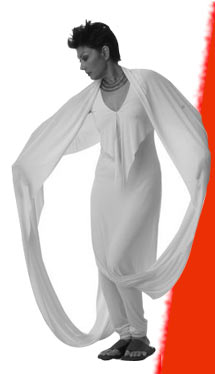Mallika Writes: View from the Bridge
The Bus Trip
The call came very late at night. I was in the middle of a rehearsal, far from a phone. “PM’s office on the line for you”. Close to midnight? I ran to the phone. Could I go on the Lahore bus on the 20th? Just like that, out of the blue. Could I get to Delhi the next morning? No, I had to perform on the 19th in Ahmedabad. Where was my passport? I had no idea. Could I get it to the PM’s office the next morning? I will try.
The night went by trying to trace my passport, the dawn in trying to find a passenger who could deliver it to the PMO. Then came the questions. What were we supposed to do? What were we supposed to say? Wear? Take? Who else was coming?
The PMO was non-committal. All details were being worked out and would be given to us upon our arrival in Delhi. Luckily I got a seat on the early morning flight to Delhi on the 20th. I was met by an officer from the PM’s office and Javed Akhtar who had also just arrived from Mumbai, having circled around for an hour in the air like I had. He had no more information than I did, and nor, we discovered did the PM’s guy. We were asked to wait and told that we were to be taken directly to Palam airport at noon to meet the rest of the party and take the plane to Amritsar. Where was the PM? No answer.
By the time we met up with the rest of our party ( and till then we didn’t even know who that was) it was 1 o’clock. The mood was upbeat, but no-on else seemed to know much more than us. At 1.30 we were asked to board two Air Force planes and were told that we would be joined by the PM at Amritsar. My companions, amongst others, were Arun Shouri, Kuldip Nayyar, Satish Gujral and Veena Nayyar, the only other woman in the group. Discovering that she too was an advocate for women’s rights, and a strong fighter for human rights, I wondered at the choice of just the two of us in this group. Was the PM trying to make a statement to an Islamic state where women were in unenviable positions about the women in India?
The bus, golden hued and decorated, awaited us at Amritsar airport. After a short informal chat with the Chief Minister of Punjab, and introductions amongst ourselves we boarded the bus. Climbing on first I wondered at this moment in history. As I was given a ticket to Lahore, my thoughts raced. For “shakun” shouldn’t one pay at least a rupee for the ticket, to wish this venture prosperity?
Soon the PM’s plane taxied in and he walked across the tarmac to us, amidst bands playing and women performing the gidda. He was greeted into the bus by Saeed Naqvi, representing Doordarshan, who had already interviewed some of us on the tarmac. Followed by his daughter and grand-daughter, Atalji looked well, relaxed and excited, and he exuded this into the already excited group in the bus. Amongst much fanfare the bus started, rolling along the mustard fields. People lined the roads, waving, screaming.
Over the next 45 minutes, as we rolled along the people lined route, the bus was like a game of musical chairs, with each of us taking time to talk to Atalji. I spoke mainly of how we, as a country so far advanced culturally, needed to share the strides made contemporarily in our arts and not merely the traditions we carried; he seemed to understand that we needed to show that we had more to offer than a tradition handed down generations. We spoke of the need to share with our counterparts the strides we had made in breaking the bondage suffered by rural women. And then before we knew it, we were at the border being lead by bhangra dancers. A short martial ceremony at our border, a gleam in the PM’s eye and we rolled through the gates marked Pakistan.
There were tears in the eyes of the people who had not come here since the Partition, but a jubilation also; most importantly, there was a common bond in the knowledge that history was being made that could change the tears of the subcontinent into a joint, fruitful tomorrow. And in the jaunty spring of the Prime Minister’s walk seemed to be the knowledge of a huge step towards a personal vision.
What was the real significance of this trip, I was asked by the Pakistanis. Did I really think that a break through would be made? The little that I have heard the PM personally, the little that I have read of his writings, heard his poems being recited, I am sure that his search for peace is real, an urgent necessity, and his pain at the state of the subcontinent equally so. Watching carefully the faces of the 300 Pakistanis sitting around me as he made his passionate and moving speech in Lahore, I could feel the ice in many hearts beginning to thaw, the glimmer of the possibility of hope. And ads he said in many conversations to the Pakistani premier during the two days, “We have come to you as the people of India, for peace, not as the government alone”. More strength to you Atalji.
|
|
|
|
|

